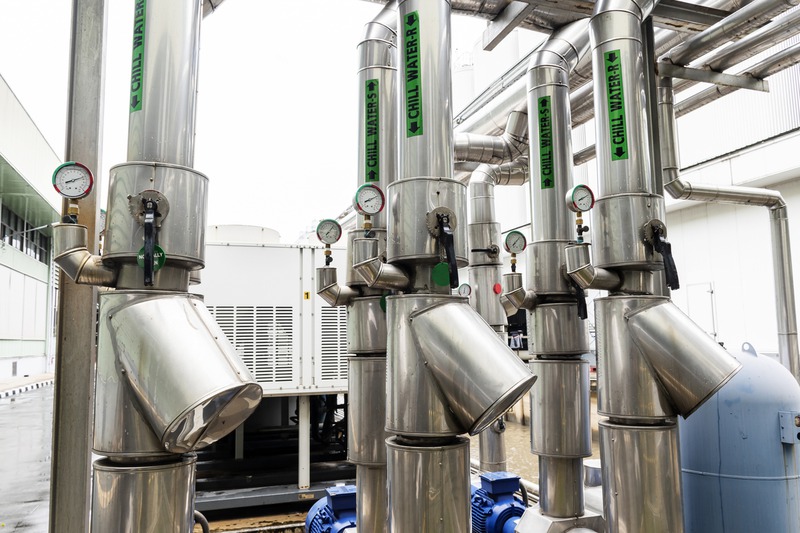High-purity hydrocarbons hold a crucial role in various industrial processes. With their refined characteristics, they not only enhance the operational efficiency but also bring forward a slew of benefits. From their contribution to consistent product quality to minimizing environmental impact, the advantages of high-purity hydrocarbons are considerable and worth exploring.
Enhanced Performance and Efficiency
High-purity hydrocarbons are synonymous with performance. They have been distilled and refined to such an extent that the impurities are significantly reduced. This purity means that they burn cleaner and more efficiently, leading to:
-
Reduced energy consumption, as higher purity fuels tend to produce more energy per unit.
-
Improved engine and machine performance due to the absence of contaminants that can cause wear and tear or reduce efficiency.
Consistency in Industrial Processes
Industries rely on the consistency of their raw materials to ensure uniformity in their products. High-purity hydrocarbons provide a stable baseline from which products can be developed with predictable results.
R&D departments benefit significantly from high-purity hydrocarbons. Owing to their consistency, researchers can base their experiments on a clean and stable starting point, leading to accurate and replicable results.
Environmental Considerations
The use of high-purity hydrocarbons reflects a growing concern for the environment. With fewer impurities, these compounds burn more completely, resulting in less pollution and a smaller ecological footprint. Companies looking to showcase a commitment to sustainability often integrate high-purity hydrocarbons in their operations to minimize harmful emissions and waste.
Regulatory Compliance
Regulations around the world are becoming stricter with regards to emissions and environmental protection. High-purity hydrocarbons help businesses stay ahead of the curve by meeting, and often exceeding, these regulatory standards. By adopting high-purity hydrocarbons early, businesses can future-proof their operations against tighter regulations that are likely to come into effect in the future.
Enhanced Safety
High-purity hydrocarbons are inherently safer to use due to their low levels of impurities. They reduce the risk of accidental fires and explosions, creating a safer work environment. The rigorous purification process that these hydrocarbons undergo also ensures that they are less reactive when being handled or stored, further minimizing risk.
Extended Equipment Lifespan
Pure compounds mean there’s less buildup of residues and a lower risk of corrosion, prolonging the life of machinery and equipment.
This is particularly important in the context of CPC manufacturers, who operate with equipment that is often highly specialized and expensive. Using high-purity hydrocarbons can be a significant cost-saving measure over the life of the equipment.
Quality Assurance in Products
High-purity hydrocarbons are vital in ensuring that the final product meets the high standards consumers expect. They contribute to the creation of products that are stable, reliable, and of high quality.
Those seeking out quality specialty solvents understand that the purity of the solvent can dramatically affect the performance of the final product, whether that’s in pharmaceuticals, cosmetics, or high-tech coatings.
Marketability and Brand Reputation
In today’s market, brand reputation can be greatly influenced by the quality of the products a company produces. By utilizing high-purity hydrocarbons in their manufacturing processes or products, companies send a strong signal to their customers. This signal is one of commitment to quality and attention to detail, which can significantly enhance the public perception of a brand.
High-purity hydrocarbons are often associated with top-tier performance and lower environmental impact, which are attractive qualities for a growing segment of the consumer base.
Brand Reputation and Consumer Perceptions
Consumer perceptions have evolved to value sustainability and environmental stewardship alongside quality and performance. Companies that anticipate and respond to these consumer values can enhance their marketability. Endeavoring to reduce their environmental footprint through the use of high-purity hydrocarbons can serve as a key differentiator in a crowded market. It positions a brand as a leader in both innovation and responsible business practices.
-
Market Differentiation through Environmental Responsibility: Employing high-purity hydrocarbons can set a company apart from competitors who may not prioritize such standards. This differentiation can be a compelling aspect of a brand’s unique selling proposition, drawing in consumers who make purchasing decisions based on ecological impact.
-
Building a Quality-Oriented Image: High-purity hydrocarbons are often synonymous with quality and reliability. When a brand is linked with these attributes, it establishes a reputation for delivering superior products. This perception reinforces a brand’s image and can translate into consumer preferences and higher sales.
-
Leveraging Sustainability for Competitive Advantage: As businesses increasingly understand the importance of sustainability, leveraging it as part of a comprehensive marketing strategy has become more common. Companies that effectively communicate their use of environmentally preferable materials, such as high-purity hydrocarbons, can strengthen their brand presence and capture the attention of eco-conscious customers.
The choice to use high-purity hydrocarbons reflects a company’s dedication to excellence. Customers are likely to appreciate the use of materials that not only improve the quality of the final product but also demonstrate an awareness of environmental concerns. This can establish a level of trust and loyalty between the brand and its customers, ensuring long-term success and brand engagement.
Specific Industry Benefits
Some industries reap particular benefits from high-purity hydrocarbons due to their specific needs and applications. For instance:
-
The pharmaceutical industry requires exceptionally pure reagents to ensure the safety and efficacy of medications.
-
The electronic industry uses high-purity solvents in the creation of delicate components that necessitate a clean manufacturing environment.
The refrigeration sector also experiences significant advantages, with products like hydrocarbon refrigerants from Diversified CPC offering optimal performance for cooling systems while being environmentally gentler compared to their lower purity counterparts.
To End
The predominance of high-purity hydrocarbons in industries around the globe is a clear indicator of their numerous advantages. From enhanced performance and efficiency to improved safety and environmental stewardship, the case for high-purity hydrocarbons is strong. As the march towards greener, more efficient industrial practices continues, high-purity hydrocarbons will undoubtedly play a pivotal role in shaping a more sustainable and productive future.




